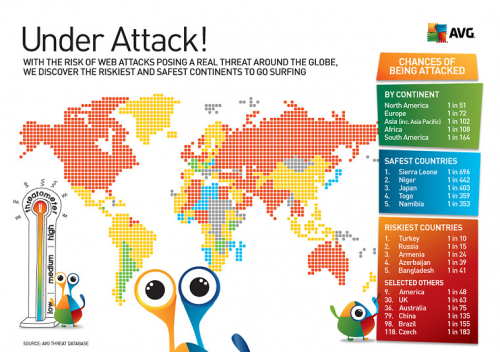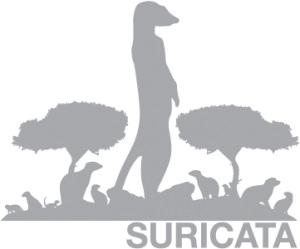
Africa: The 2nd Safest Continent to Surf the Web
by HASH on August 23, 2010
Here’s an interesting study by AVG on internet security, asking “Where in the World are you most likely to be hit by a malicious computer attack or virus?”.
Apparently, and surprisingly to me, the answer is “not Africa” or South America.
“During the last week of July, AVG researchers compiled a list of virus and malware attacks by country picked up by AVG security software. This means we have compiled data from over 127 million computers in 144 countries to determine the incidence rates of virus attacks by country.”
Dirk Singer, of AVG sent over the list of African countries, here they are country-by-country. As you can see, sub-saharan Africa is compatively ‘safe’ compared to other areas of the World. Your chances of being attacked while surfing the web in each country are:
North Africa
- Egypt 1 in 62.4
- Algeria 1 in 86.9
- Libya 1 in 87.7
- Mauritania 1 in 92.4
- Tunisia 1 in 110.7
- Morocco 1 in 112.1
Continue reading “South America #1, Africa #2, Asia #3 Safest Continents for Web”




